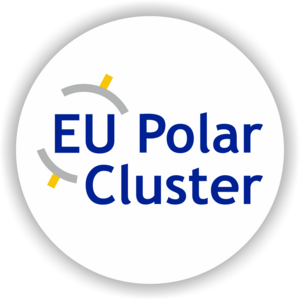RIF Field Station

Rif Field Station, IS
The Rif Field Station is administrated by Northeast Iceland Nature Research Centre, and it is named after the peninsula of Rif in the northernmost part of Iceland.
The research at the Rif Field Station focusses on monitoring projects including weather/climate change, vegetation, and birds. RIF gives access to the field area of Melrakkaslétta Peninsula (NE Iceland). A laboratory with basic facilities lies in the town Raufarhöfn and the station offers places to stay across town with a discount for researchers that come through the station.
Contribution to POLARIN key research challenges: 1, 4, 5, 6, 7
Contact: Station manager Pedro Rodrigues, pedro[at]rifresearch.is
Website
https://www.interact-gis.org/Home/Station/90
Location
The station is located in Raufarhöfn, a small village on the northeast coast of the Melrakkaslétta peninsula in Northeast Iceland. The peninsula is the northernmost lowland area in Iceland, only 3 km south of the Arctic Circle. The northern part of the peninsula is an important area for conservation, especially as a habitat for many bird species. The area has no protection status according to the Nature Conservation Act but is listed as an internationally Important Bird Area (IBA) by BirdLife International. Most of the area is privately owned but some of the abandoned farms are owned by the Government of Iceland.
Facilities
The station is currently housed in a three-floor building, partly run as a guesthouse. Accommodation facilities include two bedrooms, a kitchen, a living room, and a bathroom. It is available for 6-8 persons at a time. Laboratory and storage facilities are located in the basement. Accommodation for larger groups can be provided in a nearby guesthouse. In Raufarhöfn there is a grocery store, a hotel, a restaurant, a coffee shop, a bank, a post office, a health care centre, and a swimming pool. The station has unlimited access to the land of Rif, the northernmost part of Iceland, for scientific purposes.
Services offered
Rif Field Station offers remote access to the field area (mounting of field material and collection of samples) as well as in-person access. Each year RIF receives around 5 research teams during the summer and 4 groups of students and teachers of more than 80 persons a year in total. It is the only place where you can study the Arctic in Iceland.
What is included in the Access
Unit of access: User/day
Modalities of access offered: in-person access, remote access
For in-person access users, RIF welcomes the researchers, helps them in the field, and gives access to a local laboratory and infrastructure. Remote Access support includes the discussion of field protocols, collection of samples, and export of the samples. The typical duration of work is estimated for 2 weeks of in-person access and one week of remote access. The users will be integrated in the RIF Field Station team. The station staff will help during their stay at the station after agreement with the users.
Availability for access in the 2024 call
The availability for access in the 2024 call is 1st May 2025 – 15th October 2025.
Time frame for access preparations
The time frame for access preparations depends on the type of the planned study. The users should contact the station to discuss the required documentation and logistic arrangements.
Permits, licenses and training
Under Act No. 60/1992, natural history specimens may not be exported from Iceland except with the permission of the Icelandic Institute of Natural History and under the conditions set by the Institute on each occasion. The same applies to micro-organisms originating in geothermal areas and their genetic material.
The Institute is responsible for evaluating whether a natural history specimen is unique or rare enough to constitute an Icelandic national treasure, which under no circumstances may be exported. Examples may include rare minerals and fossils.
The Icelandic Institute of Natural History is responsible for bird ringing in Iceland under Act No. 64/1994 on the protection, conservation and hunting of birds and wild mammals. The IINH has the sole authority to ring or otherwise mark wild birds in Iceland. Bird ringing is carried out by bird enthusiasts and ornithologists who have received the necessary ringing permit.
Medical guidelines
No specific medical requirements.

